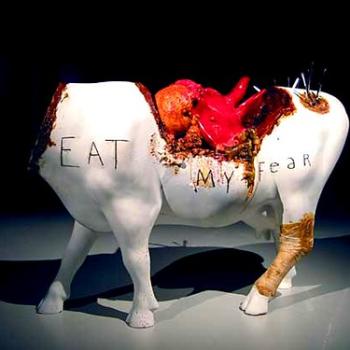And it is surely a similar world into which Jesus comes, a world of evil and death, a world chock full of enemies too strong for us to handle on our own. Little wonder, according to Matthew's telling of the tale, not long after the wondrous birth in Bethlehem in a house, according to Matthew (Mt. 2:11), that the wily Herod attempts to wheedle from the Wise Men the location of the prophesied child, hardly in order to "worship him," but rather to have him murdered. That plan having failed, the monstrous king decides on male genocide, hoping to sweep into his murderous net the child whom he fears as his usurper. Like the plan of the pharaoh, who hoped to stop the Israelites from their rapid growth by a child genocide in ancient Egypt (Ex.1-2), so too did Herod's plan go awry, allowing the child to escape and become in fact a king, though hardly a king as Herod had imagined.
Such death and blood are indeed troubling, unnerving, disturbing in the extreme. But we avoid these stories to our peril. In reality, we struggle today with more than personal trials, with broken homes, with broken lives of addiction, with obesity, with mental illness. Each of these is a serious, often deadly dilemma, not to be taken lightly. But we also struggle with "principalities and powers," that is with large international problems that need a God of power to address: climate change, nuclear standoffs, worldwide poverty amidst vast plenty, gigantic gulfs between rich and poor that should shame us all.
I readily admit that these genocidal pictures make me distinctly uncomfortable, too. But if we only see the rivers in the desert, promised from God, must we not also embrace the side of that God who can stand against evil and smite it down? I need that God, too, because I cannot face such vast enemies on my own.





